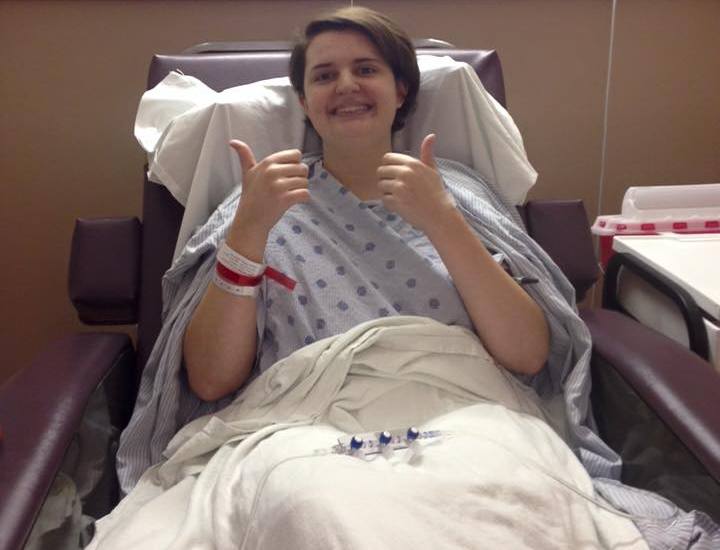I’ve struggled with my health for the majority of my life. When I was an infant, I had a severe milk allergy and was on baby food only by the time I was 3 months old. I was diagnosed with asthma at the age of 9, Tourette syndrome at the age of 11, irritable bowel syndrome at the age of 14, polycystic ovary syndrome (PCOS) at the age of 15, and sciatica and gluten intolerance at the age of 23. I learned to deal with all of my issues, but when my PCOS was acting up month after month, I knew that wasn’t normal. When I was vomiting month after month from how much pain I was in, I knew I needed a different doctor, one who would listen to me.
That journey took me, luckily, only four years. I was called a whore, a drug addict and attention-seeker during this time. While looking for my new doctor, I ended up in the emergency room more times than I can count, with pain that not even morphine would take away. Possibilities of a twisted fallopian tube, appendicitis and ruptured cysts were tested, and they always came back negative. So they would give me pain medications and send me on my way, only to see me again a month later.
It was at a hospital in Connecticut that my information was red-flagged as a drug addict. But it was also at this hospital that I met my wonderful gynecologist. It was then that the possibility of endometriosis was taken seriously. It felt so amazing and so scary that all the things wrong with me could all be tied into one disease.
Symptoms of endometriosis, despite what people think, occur at times other than your period. I had my entire cycle scheduled out on what to expect: before my period started, I would experience cramping. Then on day one of my cycle or the first day of my period, I experienced the worst of the pain, and on average it would last at least a week. I usually ended up getting some type of illness, a cold or something, and would reel from that for a few days. Then I would ovulate, which was the start of the pressure I would have. Just to use the bathroom was excruciating. And from there, the pressure would just become worse and worse. By the time my period finally started, the pain, in the only way I could describe it, was like a fire poker that has sat in a fire until it’s red-hot, stabbing into my abdomen, twisting and pulling everything from my stomach and bowels to my ovaries and fallopian tubes. The pain is so severe, I end up puking for hours until I finally just pass out from the pain. Now imagine this pain all the time, and because of this pain, you experience such severe fatigue that doing even the simplest of things, like taking a shower or doing the dishes, becomes impossible.
But if there is one thing I’ve learned living with chronic pain, it is how much you learn to fight. You find out how much of a warrior you are, because you are in a constant battle for everything you want. Because of this disease, I have to fight for my health (endometriosis is not only a chronic pain disease, but also an autoimmune disease, so you get sick much easier that most people), and I have to fight for my marriage — because of the pain, most times I cannot even be intimate with my own husband. The small amount of pleasure never really balanced out the days of pain and bleeding.
And I have to fight for my social life. I can never make set plans, as I don’t know when another flare-up will happen. I have been so blessed with an amazing husband who has helped and supported my journey with this disease, and my family as well, who has never doubted me and has always given me something to fight for. And finally my friends, for all the cancelled and changed plans and saying, “I can come over if you’re not up to going out,”’ and for never leaving my side.
But most of all, I’m thankful for my EndoSisters. I’ve learned I’m not alone in this world: I have 176 million sisters out there who actually know what I am going through and how to help, and if we all raise our voices, we will be recognized.

The Mighty is asking the following: What’s one thing people might not know about your experience with disability, disease or mental illness, and what would you say to teach them? If you’d like to participate, please send a blog post to community@themighty.com. Please include a photo for the piece, a photo of yourself and 1-2 sentence bio. Check out our Submit a Story page for more about our submission guidelines.
